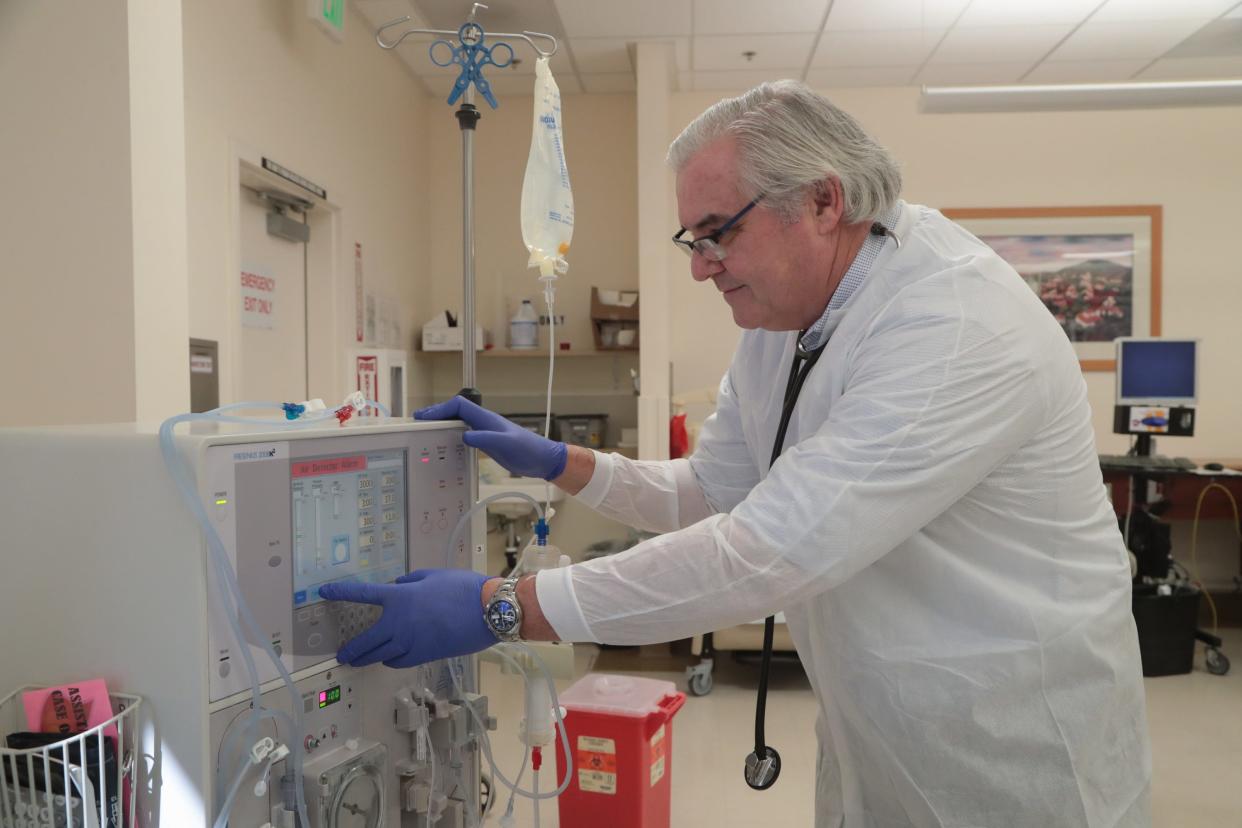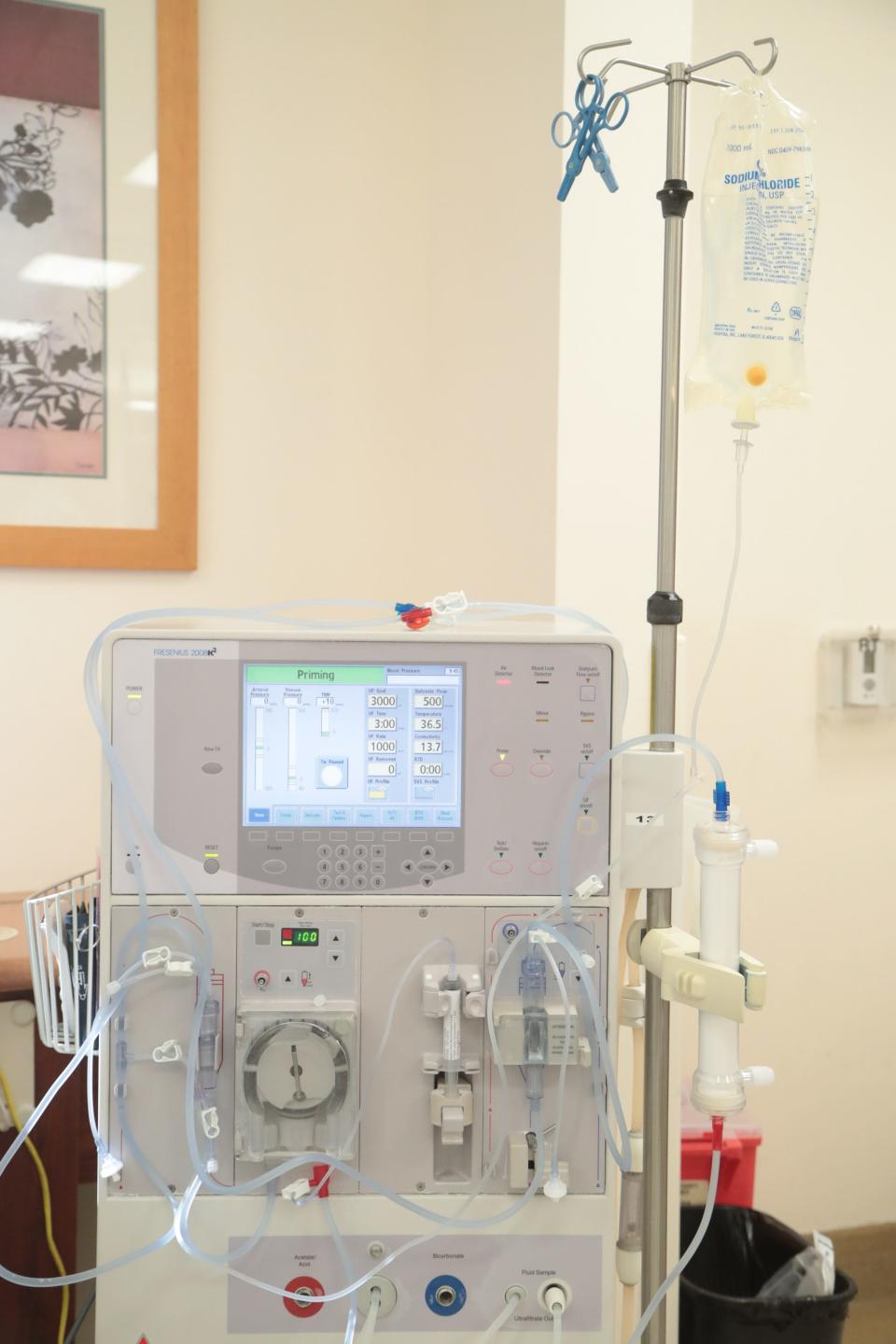Endorsement: No on California Prop. 29. Again. This dialysis measure deserves a 3rd strike

Reading their ballots in 2022 and seeing Proposition 29, California voters might be having a sense of deja vu. Didn’t we vote on this issue in 2018? Or 2020?
Yes, we did. Twice. Twice, we voted no. But here we are again.
We urge California voters to send the same message again this year. Perhaps after three strikes, the forces behind this ill-conceived campaign will realize they’re out.
What is going on here?
Like its 2020 cousin, Proposition 29 asks voters to play medical expert and agency regulator when it comes to how dialysis clinics operate in the Golden State.
The measure, advocated for by the Service Employees International Union-United Healthcare Workers West, would require clinics to have at least one physician, nurse practitioner or physician assistant on-site during all the hours patients receive treatments at that clinic. Never mind that such clinics are already required by federal regulations to have a medical director who is a board-certified physician. The medical director is responsible for quality assurance, staff education and training and developing and implementing clinic policies and procedures. Federal regulations do not require medical directors to spend a set amount of time at the clinic; federal guidelines consider the position to reflect about one-quarter of a full-time position.
Proposition 29 also would require that clinics report data on dialysis-related infections, obtain consent from the state health department before closing a clinic and not discriminate against patients based on the source of payment for care. While we might be able to get behind the non-discrimination clause, the other mandates make no sense. Clinics are already required to report a lot of data to the federal government.

Prop. 29’s proponents say dialysis companies don’t invest enough in patient care and safety, although they are highly profitable. The proponents also contend that having a physician or nurse practitioner, in addition to current staff, available at all times could help reduce hospitalizations. And they argue that adding reporting requirements would increase transparency in the dialysis business.
The Legislative Analyst’s Office (LAO), which provides nonpartisan analysis of ballot propositions, notes that Proposition 29 would increase costs for clinics — which could prompt them to close down or raise fees. (Lowering their profit margins is another possible outcome, but we won’t hold our breath on that.)
The extra costs would be especially harmful to clinics operating close to the margins (think those in rural, lower-income communities). We’d hate to see any of those clinics close, forcing some of our most vulnerable Californians to travel farther for care.
The measure would likely increase state and local government costs in the tens of millions of dollars annually, the LAO predicts, since the government picks up the tab for a lot of dialysis care.
Could or should dialysis giants like DaVita and Fresenius Medical Care (which oppose this measure for obvious reasons), take some of their profits and put more into patient care? Probably, but forcing them into it like this seems to be the wrong way to go.
As we said in 2020, state voters are not equipped to play doctor and effectively regulate what is indeed a life-saving procedure for some 80,000 of their fellow Californians. Those responsibilities ought to be left to lawmakers and state and federal regulators. If reforms are needed in this industry, then they must flow from those best able to vet them, rather than from the ballot box.
This type of nuisance initiative only serves to increase skepticism about California’s initiative process. Vote “no” on Proposition 29 to send a strong message against such cynical tactics. Let’s hope the third time is a charm and they finally get the message.
This article originally appeared on Palm Springs Desert Sun: California Prop. 29 Endorsement: No says Desert sun editorial board

